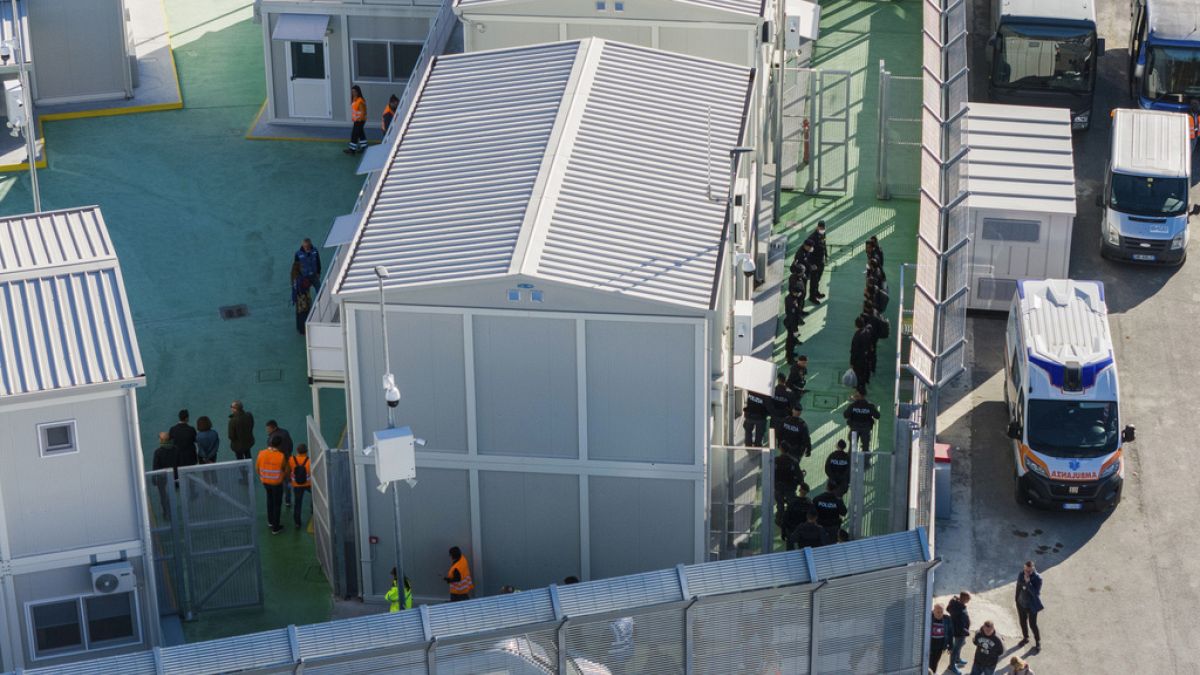Italian judges recently overturned detention orders for seven migrants sent to Albania, disrupting Italy’s plan to outsource their reception and repatriation for the second time. This decision has heightened tensions between the judiciary and the government.
Last week, a court in Rome halted the approval of detention orders for the seven migrants who were relocated to a repatriation center in Albania under an agreement between Italy and Tirana. The asylum seekers are from Egypt and Bangladesh, countries at the center of a dispute between the judiciary and government. The government’s appeal of a previous similar decision is pending a ruling from the Court of Cassation in December.
Despite the conflict, European law takes precedence over national law in cases of dispute. As a result, the seven migrants will be transferred back to Italy and released, similar to a previous group of migrants in October, until the European Court of Justice (ECJ) issues a ruling. The government tried to bypass legal obstacles by updating the list of “safe countries” in late October, but the judges rejected this maneuver.
The court’s decision, while temporary, has further strained the relationship between the judiciary and the government. Some politicians have accused judges of being politicized, while judges like Silvia Albano have faced personal attacks fueled by media and politicians, including Prime Minister Giorgia Meloni. These tensions are escalating as Deputy Prime Minister Matteo Salvini criticized the ruling as a political move undermining Italy’s security.
In response to the situation, Justice Minister Carlo Nordio called for increased dialogue between the government and the judiciary and a reduction in political criticism of court decisions. This ongoing conflict highlights the importance of upholding the rule of law and ensuring that EU laws are correctly applied, even when they conflict with national laws. As the situation continues to unfold, the role of the judiciary in protecting legal rights in Italy remains crucial.











